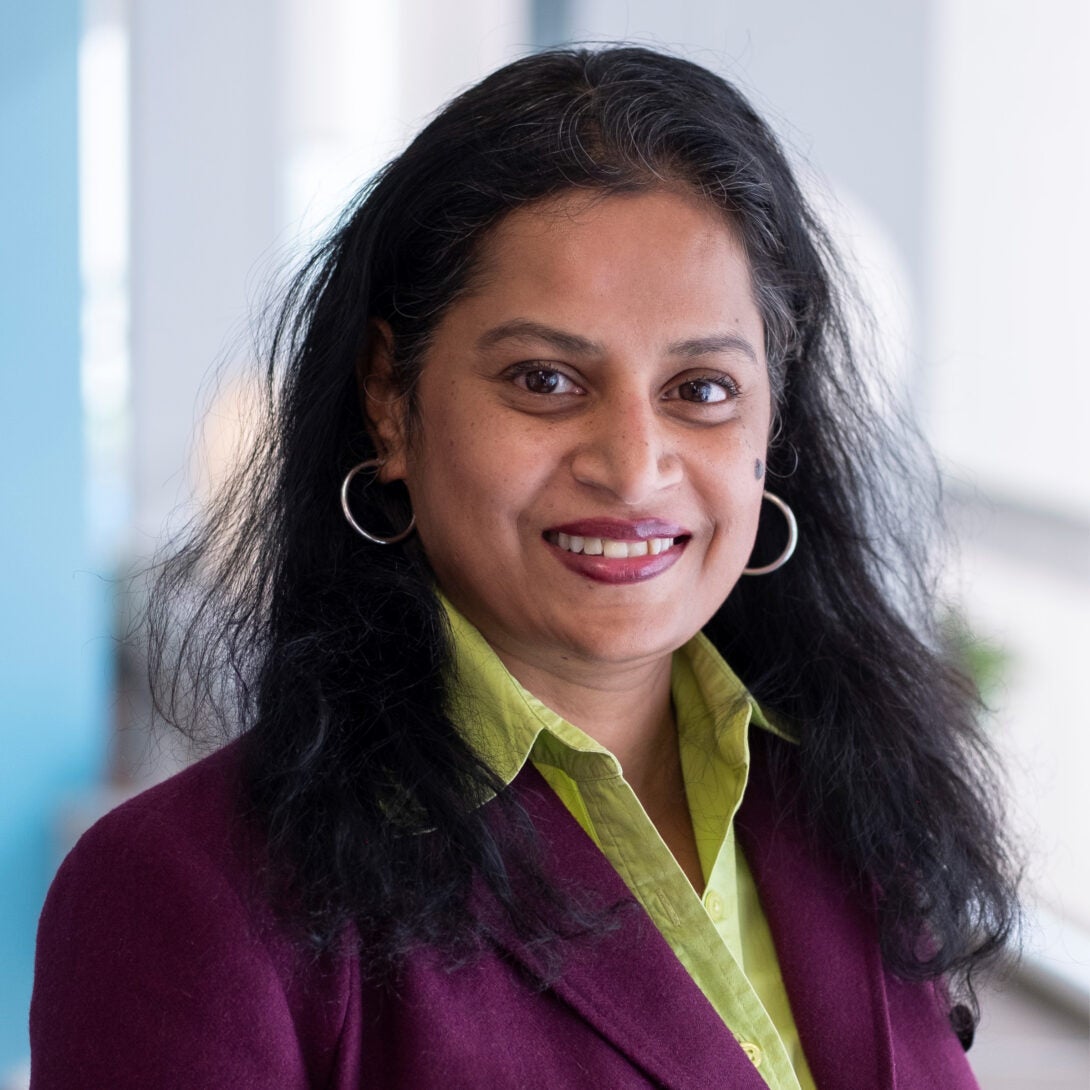Roopa Foulger, VP of Digital Innovation Development at OSF HealthCare, bridges technology and healthcare with MSHI degree
Roopa Foulger, VP of Digital Innovation Development at OSF HealthCare, bridges technology and healthcare with MSHI degree

A seasoned technologist with over 25 years of experience, Roopa Foulger currently serves as Vice President of Digital Innovation Development at OSF HealthCare. Armed with a bachelor’s degree in electrical engineering, Roopa has dedicated the last 17 years at OSF HealthCare to advancing data analytics and pioneering transformative innovations for the organization.
Roopa’s journey was further shaped by the collaboration between OSF HealthCare and the University of Illinois Chicago (UIC) enrolling in UIC’s online Master of Science in Health Informatics (MSHI) program. As a Summer 2024 graduate, Roopa looks back at the program with appreciation for the comprehensive education and practical skills it provided. This experience not only filled her knowledge gaps but also broadened her understanding of healthcare.
Roopa shares insights into how this partnership enriched her professional development, equipped her with crucial skills in health informatics, and empowered her to drive technological advancements that positively impact healthcare delivery.
How did the partnership between OSF HealthCare and UIC’s online Master of Science in Health Informatics program contribute to your professional development?
I stumbled upon a newsletter at our organization announcing a collaboration between UIC and OSF Healthcare that offered discounts for the online MSHI program. It was a fully online program, which suited my full-time schedule in data analytics.
As an electrical engineer, I never received formal training in healthcare concepts or terminology, so I relied on on-the-job learning. Joining the program seemed like the perfect opportunity to formally fill those knowledge gaps. Since starting in Fall 2022, I’ve gained valuable insights especially in the healthcare focus.
What skills or knowledge did you gain from the online MSHI program that have been most valuable in your work at OSF HealthCare?
I gained valuable insights into organizational behavior and deploying technology in healthcare contexts, which have been particularly beneficial. Learning about the history of healthcare, healthcare acts, and various terminologies and interfaces has provided a solid foundation to tackle current challenges.
The online MSHI program also emphasized communication, social dynamics, and socio-technical systems. These insights have equipped me with valuable skills in change management and technology adoption frameworks, which I’ve already started applying in my work.
What class or classes did you most enjoy in the online MSHI program at UIC?
One course that stood out was BHIS 437: Healthcare Data. The hands-on aspects of this course provided insights into healthcare challenges which included organizational, cultural, and historical. This course helped me understand the complexities behind data interoperability and its broader implications. It gave me a solid grasp of today’s healthcare landscape and ideas on how to innovate and contribute.
Additionally, courses focusing on organizational skills and medical terminologies, such as BHIS 406: Medical Terminology for Health Information Management, were particularly valuable. Understanding these terms helps me follow clinical conversations better despite not being a clinician myself. These courses have been a real asset in navigating those discussions and staying engaged.
Can you share an example of a project or challenge you overcame at OSF HealthCare where your education in health informatics played a significant role?
One example that stands out involves improving user experience. As a technologist, I used to dive straight into solutions when faced with a problem. However, my education taught me the importance of thoroughly framing the problem first. This involves spending time to clearly define the problem or opportunity statement and investigating it thoroughly.
The case studies from my coursework were incredibly helpful. They were practical and reflective of real healthcare scenarios. This experience helped me understand the importance of identifying root causes, considering social and behavioral factors, and understanding the work environment and interactions. I’m currently having conversations with leadership about formally implementing some of the frameworks and methodologies I learned. This approach is already influencing our practices and leading to more effective solutions.
What advice would you offer to OSF professionals who are considering enrolling in the program?
Digital technology is rapidly transforming healthcare. When I joined OSF HealthCare, much of our work was still paper based. Now, data and informatics are becoming critical to our operations and have tremendous potential to enhance how we serve our patients and improve productivity.
However, the gaps in our systems cannot be bridged by technologists alone. It’s crucial for more clinicians to go through this program. Just as I gained insights into the clinical side, clinicians will gain a better understanding of the technology, data, and informatics aspects. This mutual understanding creates a level playing field which can foster better collaboration between technologists and clinicians.